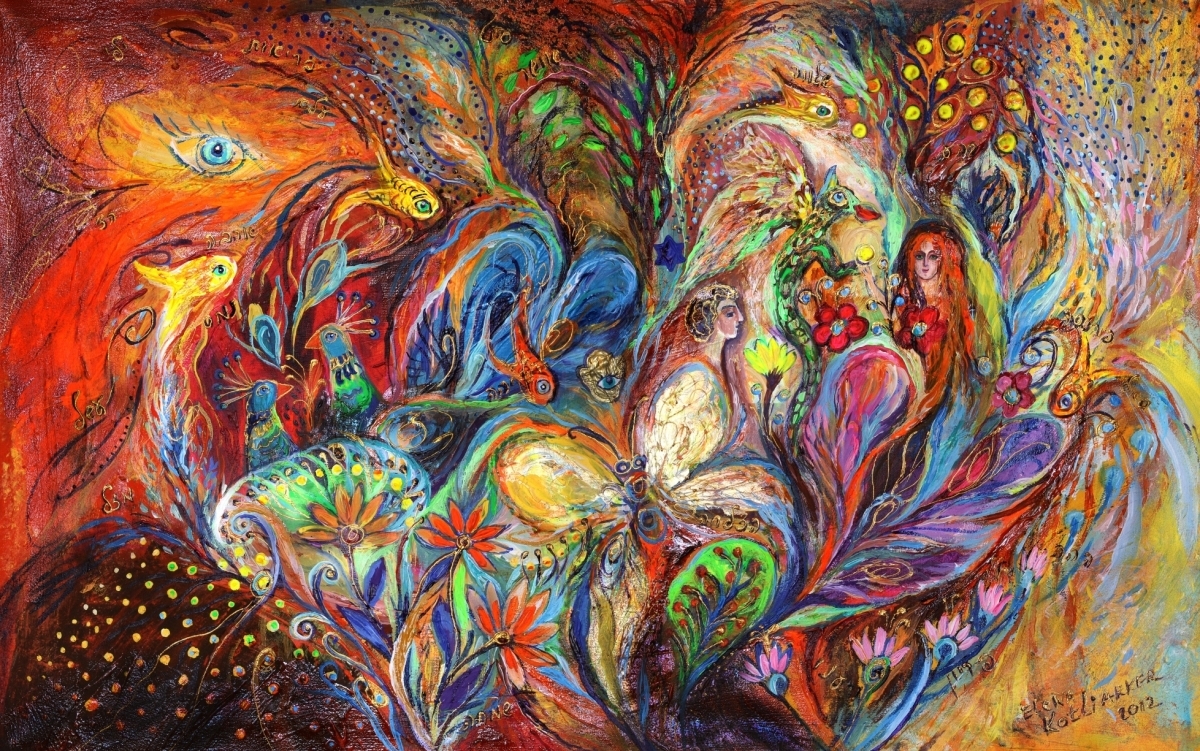What does it mean to look someone in the face?
We meet Eve in the second chapter of Genesis when God says, “It is not good for man to be alone. I will make him an ezer kenegdo.”
The 1611 King James version translates this as, “a help meet for him,” while other translations say “helpmate” or “helper.” (In 1611, meet meant appropriate.)
This mistranslation in 1611 caused Christians to believe that the proper role of women was to be the “assistant,” or servant, to their man.
The Hebrew term ezer kenegdo is notoriously difficult to translate. In fact, it appears nowhere in the Bible except the second chapter of Genesis.
But we know for certain that it doesn’t mean “helper.” A more accurate translation would be “lifesaver.”
Let’s look at the two separate words that form ezer kenegdo.
Ezer is always interpreted as “power” or “strength” or “rescue.”
Throughout the Bible, it speaks only of God, especially when you desperately need him to come through for you.
“There is no one like the God of Jeshurun, who rides on the heavens to be your ezer.” – Deut. 33:26
“Blessed are you, O Israel! Who is like you, a people saved by the LORD? He is your shield and ezer and your glorious sword.’ – Deut. 33:29
“I lift up my eyes to the hills-where does my ezer come from? My ezer comes from the LORD, the Maker of heaven and earth.’ – Ps. 121:1-2
“May the LORD answer you when you are in distress; may the name of the God of Jacob protect you. May he send you ezer.” – Ps. 20:1-2
Kenegdo means “facing.” It can also mean “opposite.” Thus,
“It is not good that the man should be alone; I will make him a power facing him.”
“I will make him a strength opposite him.”
“I will make him a rescuer that looks him in the face.”
Each of these translations is vastly more accurate than “helpmate” or “helper”.
Remember when Arwen saves Frodo in The Lord of the Rings?*
Arwen is a princess, a beautiful elf maiden. She comes into the story in the nick of time to rescue Frodo just as the poisoned knife wound is about to claim him.
ARWEN: He’s fading. He’s not going to last. We must get him to my father. I’ve been looking for you for two days. There are five wraiths behind you. Where the other four are, I do not know.
ARAGORN: Stay with the hobbits. I’ll send horses for you.
ARWEN: I’m the faster rider. I’ll take him.
ARAGORN: The road is too dangerous.
ARWEN: I do not fear them.
ARAGORN: (relinquishing, he takes her hand.) Arwen, ride hard. Don’t look back.
It is she, not the warrior Aragorn, who rides with glory and speed. She is Frodo’s only hope. She is the one entrusted with his life and with him, the future of all Middle Earth.
She is his ezer kenegdo.
Can you imagine how history might have unfolded differently if those translators in 1611 had found the courage to translate what the Bible really says?
Roy H. Williams
more at www.mondaymorningmemo.com
* The Lord of the Rings example is taken from the book Captivating by John & Stasi Eldredge.

